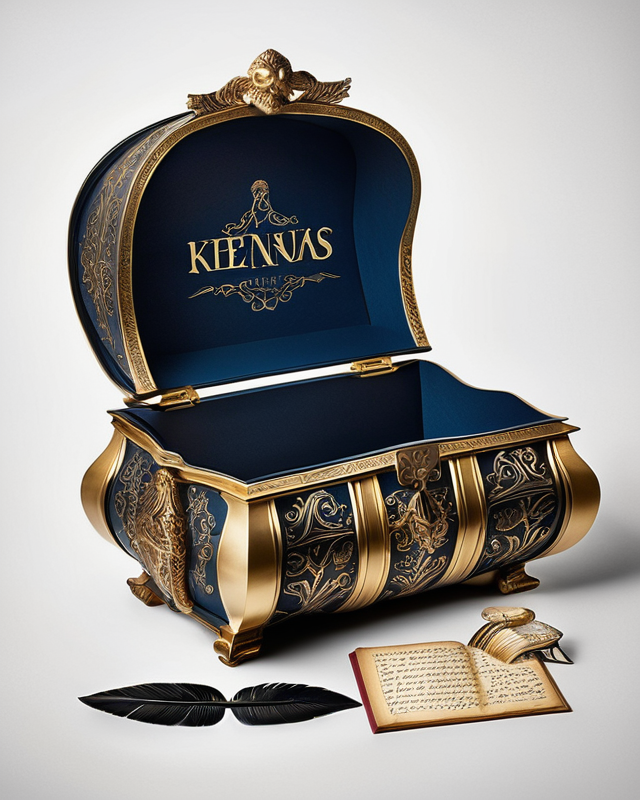Cryptocurrency and Blockchain Trends: What’s Poppin’ in the Digital Money World?
The Rise of Decentralized Finance (DeFi) and NFTs + Governments Trying to Keep Up
Once upon a time, money was simple. You had cash, maybe a debit card, and you knew exactly how things worked. Then boom—cryptocurrency came through like a techy tornado, flipping the financial world on its head. We’ve got Bitcoin billionaires, NFT millionaires, and DeFi (Decentralized Finance) making traditional banks feel like Blockbuster in the age of Netflix.
But while crypto lovers are busy flipping JPEGs of pixelated monkeys for thousands of dollars, governments are scrambling to figure out how to regulate this digital gold rush without killing the vibe. Let’s break it down in plain English, with a little humor and some real-life examples.
Decentralized Finance (DeFi): The Bank-Free Money Movement
Imagine a world where you don’t need a bank to store, send, or borrow money. That’s DeFi in a nutshell. DeFi platforms use blockchain technology to let people lend, borrow, trade, and earn interest on their crypto without going through a traditional bank.
How It Works:
- Instead of applying for a loan at the bank (where they put you on hold for 45 minutes before telling you "no"), you can borrow crypto instantly using smart contracts.
- Instead of letting a bank hold your money and give you 0.01% interest, you can put your crypto into a liquidity pool and earn way more.
Real-Life Example: The Crypto Loan Hustle
Let’s say you need cash, but instead of selling your Ethereum (ETH), you can borrow against it using DeFi platforms like Aave or Compound. You keep your ETH, get your loan, and when you pay it back, you still own your original crypto (hopefully, it’s worth even more).
Urban Humor Side Note: "Basically, DeFi lets you be your bank—minus the annoying overdraft fees and ‘please hold’ customer service music."
NFTs: Digital Art, Flex Culture, and More Than Just JPEGS
If 2021 was the year of anything, it was the year NFTs (Non-Fungible Tokens) went from geeky tech to mainstream madness. You probably heard about million-dollar digital monkeys (Bored Ape Yacht Club), NBA highlight reels being sold like trading cards, and even Twitter’s CEO selling his first-ever tweet for $2.9 million.
But NFTs aren’t just about overpriced pixel art. They’re digital ownership certificates stored on the blockchain, proving that you own a unique digital item—whether it’s art, music, in-game assets, or even virtual real estate.
Real-Life Example: The NFT Flex Game
- Imagine you buy a Bored Ape NFT for $200,000. You slap it on your Twitter profile, get exclusive access to parties with celebrities, and months later, sell it for $500,000.
- Or, let’s say you're a musician. Instead of begging Spotify to pay you pennies per stream, you can sell your music as an NFT directly to fans and keep all the profits.
Urban Humor Side Note: "It’s like digital street cred—except instead of sneakers, people are flexing cartoon animals and virtual sneakers on the blockchain."
How Governments Are Trying (and Struggling) to Regulate Crypto
With all this money flying around in crypto and DeFi, governments are looking at it like, “How do we tax this before everybody quits their jobs and moves to the metaverse?”
Regulating crypto is tricky because it was built to avoid government control. But here’s how different countries are handling it:
1. The U.S.: The “Let’s Tax This” Approach
The IRS now treats cryptocurrency like property, meaning you owe taxes if you sell your Bitcoin for a profit. The SEC is also cracking down on crypto companies that offer interest-earning accounts, saying they should follow banking laws.
2. China: The “No Crypto for You” Strategy
China straight-up banned crypto mining and transactions, forcing crypto miners to pack up their computers and move to friendlier places like Texas and Kazakhstan.
3. El Salvador: The “We All In” Move
While some countries are banning crypto, El Salvador made Bitcoin legal tender, meaning you can buy coffee, pay rent, and even pay taxes using Bitcoin. The government even gave out free Bitcoin to citizens through its Chivo Wallet.
Urban Humor Side Note: "Meanwhile, in the U.S., we’re still figuring out how to deposit a check using a banking app without it getting rejected."
The Future: What’s Next for Crypto, DeFi, and NFTs?
If history has taught us anything, it’s that crypto isn’t going anywhere—it’s just evolving. Here’s what we can expect in the near future:
1. More Government Regulation (For Better or Worse)
Expect more countries to follow the U.S. in taxing crypto profits, tightening rules on DeFi platforms, and making exchanges follow Know Your Customer (KYC) policies.
2. NFTs Expanding Beyond Art
- Music Industry: Artists will sell NFTs as concert tickets, albums, and VIP passes.
- Gaming: More video games will have NFT-based economies where players own their in-game assets.
- Real Estate: People are already buying virtual land in the metaverse—yes, people are paying thousands for pixels in online worlds.
3. The Rise of Central Bank Digital Currencies (CBDCs)
Governments don’t like being left out of the crypto game, so many are working on their digital currencies (CBDCs). These are like crypto versions of traditional money, controlled by central banks. The U.S., China, and Europe are all working on this.
Urban Humor Side Note: "It’s like when your parents finally join Instagram—late to the party, but trying to fit in."
Final Thoughts: Should You Get Into Crypto, DeFi, or NFTs?
If you’re thinking about diving into the crypto world, do your research first. It’s a game with high rewards, but also high risks. Here’s what you can do to stay smart:
✅ Learn Before You Invest – Don’t buy into the hype; understand how blockchain, DeFi, and NFTs work.
✅ Diversify – Don’t put all your money into one cryptocurrency or NFT. Spread your investments.
✅ Be Ready for Volatility – Crypto prices swing faster than gas prices during a crisis—be prepared.
✅ Watch for Scams – If something sounds too good to be true, it probably is.
At the end of the day, crypto, DeFi, and NFTs are here to stay, and whether governments like it or not, people are finding new ways to use blockchain technology to build wealth, innovate, and create a future that doesn’t rely on traditional banks.
The question is—are you in or are you just watching from the sidelines?
Urban Humor Takeaway:
"Whether you think crypto is the future or just another get-rich-quick scheme, one thing’s for sure—there’s never a dull moment in the blockchain world. Now, excuse me while I figure out how to turn my grocery receipts into NFTs."



Comments ()